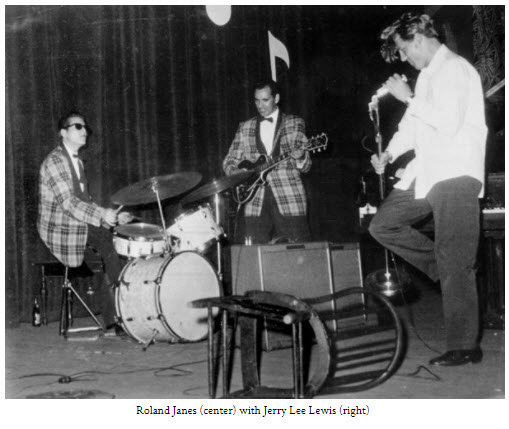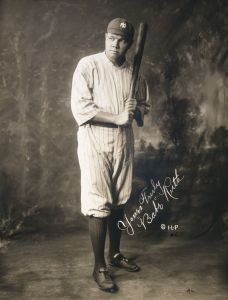One of the year’s pleasant surprises for New England baseball fans everywhere was the Boston Red Sox winning of the 2021 American League East Division Series. It was supposed to be a rebuilding year for the home team and none of the baseball experts predicted them to be in a position to compete for a playoff spot this season.
The 2021 Red Sox team was a scrappy and likable bunch of players, fighting until the last out and often coming from behind to win games. They were underdogs all year but managed to squeak into a wildcard playoff position; where they then proceeded to defeat their arch-rival New York Yankees, and odds-on favorites Tampa Bay Rays – before finally losing in the championship series to the Houston Astros.
A lot of the credit for the team’s successful season was given to their young manager, Alex Cora. Alex had previously coached the Red Sox and was praised for leading the team to the World Series Championship in 2018. He was suspended by Major League Baseball for the entire 2020 season, however, when it was discovered that he participated in a scheme to steal the opposing team’s pitching signals back in 2017 when he was working as a bench coach for the Houston Astros.
Trying to steal your opponents signs is a tradition as old as baseball because it can give batters a significant advantage when they know which type of pitch is coming (Fastball, Curveball, Sinker, Breaking Ball, Splitter, etc.). Stealing signs is not against the rules as long as the players manage to decipher the signals using personnel that are on the field.
The most common way teams try to steal signs is for a runner on base to peek in and study the hand signals the catcher sends to his pitcher prior to every pitch and then relay the sign to his teammate standing in the batting box. If a team does not disguise their signals effectively or change them up occasionally, then the opposing team is usually able to decode them.
What made the sign-stealing scheme devised by the Houston Astros and Alex Cora against the rules is that their efforts made use of on-field technology. They used a dedicated camera in the center field stands of their home stadium that was focused directly on the opposing team’s catcher. The video was sent to a monitor near the Houston dugout where Houston players could examine it and quickly decode the signs being sent to the pitcher. Various methods were then used to communicate the decoded pitch signs to the batter, including hand signals, whistling and banging on a trash can. Alex Cora even received the stolen sign information on the smartwatch he was wearing.
Condemnation was swift when the scheme was first revealed to the public in 2019 by a traded Houston pitcher. The whole Houston Astros team was immediately branded as cheaters and the World Series championship Houston won in 2017 came to be seen as illegitimate, tarnished forever by the cheating scandal. Major League Baseball conducted a retroactive investigation in 2019 and punished all the managers it found participated in the scheme with a one year suspension.
This included Alex Cora, who had moved on to manager of the Boston Red Sox and led them to the 2018 World Series Championship. Cora paid a high price for his decision to participate in the cheating scheme. The once proud man lost his job, his sterling reputation, his dignity, and the respect of his friends, family and colleagues. He spent a year exiled away from the game he loved while he watched the media attack his character and his young children suffer because of his sullied reputation.
Despite the harsh judgement, Cora never complained. He sincerely apologized for his actions, admitted his fault in the sign stealing scheme, acknowledged that what he did was unfair to the teams they played against and accepted his punishment as well deserved. It was clear he truly felt remorse for his role in the whole affair.
I found myself becoming emotional while watching Alex Cora lovingly embrace his young 14 year old daughter Camilla in the immediate aftermath of the Red Sox victory over the Rays in the Division Series. A postgame reporter asked Alex what that moment meant to him after serving a year of suspension. Here is the video clip of that special moment courtesy of the MLB Network (along with a transcript of his remarks about his family):
“I’m happy for my family. I put them in such a tough spot last year and for them to be able to enjoy it is very gratifying, I’m very very happy for them. She [Camilla] suffered a lot and it was my fault, and sometimes we make bad decisions, and I made a horrible decision in baseball and I paid the price. But what really hurt me was for them to suffer because of my mistakes. And for her to enjoy this is very gratifying.
Alex Cora, Postgame interview, 2021 ALDS
So many people today are afraid to say they are sorry or admit they have done something wrong. They view apologizing as a sign of weakness and surrender; therefore their egos prevent them from owning up to their mistakes or attempting to repair and heal the hurt they have caused.
Still other people never develop the moral compass or sense of compassion and empathy that is necessary to understand how their actions negatively affect others. They feel entitled, believing that the world revolves around them – and they are so used to thinking about themselves that they have no capacity to think about anyone else.
That is why it was so refreshing to watch how Alex Cora handled the fall out from the cheating scandal. Here was a rare example of an authentic apology, one where Alex confessed remorse for his mistake, admitted that it was wrong, fully cooperated with the investigators, accepted his punishment and attempted to make amends with those who were most hurt.
I can’t help but contrast Alex Cora’s apology with one recently made by the quarterback of the Green Bay Packers, Aaron Rodgers. Aaron was widely criticized when it was discovered that he lied to reporters at a press conference when he told them he had been fully “immunized” against the COVID-19 virus. The truth that he had never received a vaccination was only revealed after he became infected with COVID and was forced to go into NFL quarantine protocols.
Rather than apologizing for lying to reporters and his failure to follow mandated COVID-19 safety protocols, Rodgers first tried to explain that when he said he was immunized he meant he had taken some (ineffective) home treatment and he didn’t actually say that he was vaccinated. He inferred that the reporters were to blame because they assumed immunized meant vaccinated.
When that explanation was roundly ridiculed, Rogers tried again by issuing a statement saying that some people might have felt misled by his comments and that he takes full responsibility for the misleading comments.
Notice in this example of a fake apology Rogers never says he is sorry for putting people at risk and he never says he regrets what he did. He apologizes only to those who “felt misled,” as if it was just their feeling, and not his own actions, that were to blame. The reality is that people felt misled because Rodgers misled them.
Rodgers elaborated further, explaining that he believed strongly in body autonomy and that he wasn’t up-front with people because he didn’t want to acquiesce to a “woke culture” or a “crazed group of individuals” who harass those who choose not to get vaccinated. With this explanation, Rodgers again shifts the blame for his wrongdoing. It is not his fault that he lied and exposed others to potential risk, – it is the fault of a group of crazy people and the toxic culture.
After this explanation was also criticized, Aaron Rodgers just refused to talk anymore about the subject. This was probably his wisest decision since bad apologies that blame the victims usually make things worse than saying nothing at all.
Looking in someone’s eyes and offering a sincere apology is not easy. Many people, like Aaron Rodgers, attempt to get by with with fake apologies which seek to avoid responsibility by making excuses, shifting blame, downplaying what was done, invalidating the hurt person, or trying to move on prematurely.
By contrast, Psychologists say that authentic apologies have most or all of the following elements:
- It is freely offered without conditions or minimizing of what was done
- It conveys that the person apologizing understands and cares about the hurt person’s experience and feelings
- It conveys remorse
- It offers a commitment to avoid repeating the hurtful behavior
- It offers to make amends or provide restitution if appropriate
During my lifetime I have given more than my share of ineffective apologies, but it is a life skill that I’m still working to improve because it is impossible for any of us to go through life without hurting someone. As Bob Dylan once sang: “I hurt easy, I just don’t show it; you can hurt someone and not even know it“. We are all human and in the daily course of our existence, no matter how hard we try, there are going to be moments ahead when we are guilty of hurting people. During those moments of our life, we should try, like Alex Cora, to put aside our egos and summon the humility and dignity that is required to repair the damaged relationship and make it stronger.
A good apology is like an offering or a gift that has a supernatural power to heal. The Catholic faith believes that admitting to our faults and seeking reconciliation with God and our neighbors is so important that they have established it as one of the Church’s seven sacred sacraments. The practice of Confession and forgiveness are referred to as a healing sacrament, one in which a spiritual power is believed to be transmitted through channels of divine grace.
During this season of thanks giving and gift giving, may you too come to experience the holy and redemptive power of the Sacrament of Sorry that is just waiting for all of us who seek it out sincerely.





